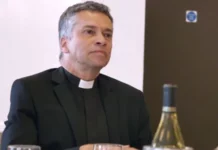The Government has published a coronavirus action plan. We will review this and update the guidance on this page as needed.
All guidance will continue to reflect appropriate Public Health advice.
Our guidance is kept under constant review.
The threat posed by COVID-19 has been assessed by the Chief Medical Officer as ‘moderate’. This permits the Government to plan for all eventualities. The risk to individuals remains low.
Guidance for churches
Current Government advice is that individuals should follow good hygiene practices including:
- carrying tissues and using them to catch coughs and sneezes, and binning the tissue;
- washing hands with soap and water (for 20 seconds) or using sanitiser gel to kill germs.
Advice has also been issued to travellers who have returned to the UK from a number of countries.
Anyone who has returned to the UK from any of these areas in the last 14 days and develops symptoms of cough or fever or shortness of breath, should immediately:
- stay indoors and avoid contact with other people as you would with the flu;
- call NHS 111 to inform them of your recent travel to the country.
In the event of increased community transmission of coronavirus, priests should take a view whether it is necessary to withdraw the Common Cup. If so they should:
- Suspend the administration of the chalice and offer Communion in one kind only i.e. the consecrated bread/wafer/host, with the priest alone taking the wine.
- Consider suspending handshaking or other direct physical contact during the sharing of the peace.
- Consider suspending direct physical contact as part of a blessing or ‘laying on of hands’.
Where the priest has not suspended the administration of the chalice, communicants may nevertheless decide to receive in one kind only at their own discretion.
It is also best practice for churches to have hand-sanitisers available for parishioners to use.
In addition, priests presiding at the Eucharist, communion administrators and servers should wash their hands, preferably with an alcohol-based (minimum 60%) hand-sanitiser.
Intinction is not recommended (even by celebrants or communion-administrators) as this represents an infection transmission route as well as a risk to those with certain allergies.?
Best hygiene practice should continue to be observed in all pastoral contacts.
Advice from Public Health England
Public Health England recommends that you should take usual infection prevention precautions including:
- Wash your hands often with soap and water for at least 20 seconds. Use an alcohol-based hand sanitiser that contains at least 60% alcohol if soap and water are not available. This is particularly important after taking public transport.
- Avoid touching your eyes, nose, and mouth with unwashed hands.
- If you feel unwell, stay at home, do not attend work or school.
- Cover your cough or sneeze with a tissue, then throw the tissue in a bin. Download a poster from NHS England with guidance.
- Clean and disinfect frequently touched objects and surfaces in the home and work environment.
Brendan McCarthy
FAQs
WHAT IS CORONAVIRUS AND SHOULD I BE CONCERNED?
WHAT ARE THE SIGNS AND SYMPTOMS OF THIS NEW VIRUS?
WHAT IS THE CURRENT RISK LEVEL TO THE UK?
HOW DOES THIS NEW CORONAVIRUS SPREAD?
WHAT CAN I DO TO REDUCE MY RISK OF CATCHING CORONAVIRUS?
SHOULD PEOPLE WEAR FACE MASKS TO PROTECT THEMSELVES FROM INFECTION?
CAN CORONAVIRUS BE TREATED?HOW DEADLY IS THE CORONAVIRUS?
WHERE DO I GET THE LATEST INFORMATION?WHAT SHOULD CHURCHES DO AT THIS STAGE?
WHAT IF A MEMBER OF MY CONGREGATION IS DIAGNOSED WITH COVID-19?
HOW WILL I KNOW IF/WHEN THE CHURCH OF ENGLAND CHANGES ITS ADVICE?



